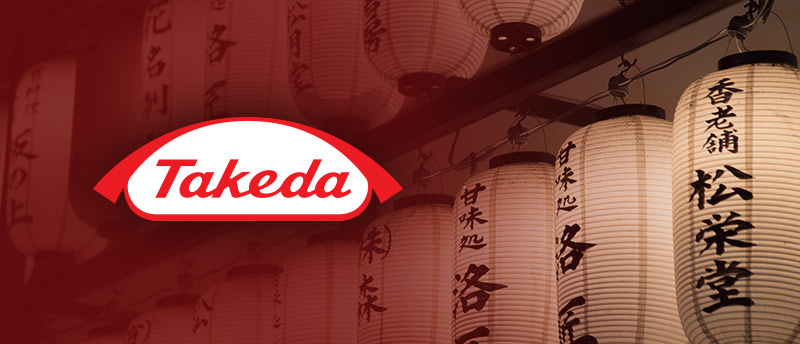Takeda Pharmaceutical: Lawsuits To Know

Takeda Pharmaceutical Company Ltd is a Japanese company originally founded in 1781. While the company's roots lie in traditional Eastern herbal medicines, today Takeda is the largest pharmaceutical company in Asia and one of the key players in the pharmaceutical industry worldwide. The company's current product line includes drugs prescribed to treat metabolic, gastroenterological and neurological disorders as well as some forms of cancer.
During its long and rich history in the pharmaceutical space, Takeda has produced many life-saving medications to treat a variety of maladies. However, the drug maker has also been found at the center of several major drug lawsuits in the United States. Here is a brief look into some of the most notable legal suits filed against Takeda Pharmaceuticals.
Uloric
The Product: Uloric (febuxostat) is a drug approved to treat gout, a form of chronic arthritis most commonly seen in adults. Gout is caused by a buildup of uric acid in the body. Symptoms include pain, redness, and swelling around the joints. By lowering uric acid levels, Uloric can alleviate inflammation and pain in gout patients.
The Claims: Plaintiffs in the Uloric lawsuits claim that the drug increases a patient's risk of death as well as other serious cardiovascular events. These claims were corroborated by a recent decision from the U.S. Food and Drug Administration (FDA) in February 2019 to include a boxed warning on the gout drug and limit prescriptions of Uloric to patients who can not otherwise be treated using an alternative medication. These lawsuits further claim that Takeda Pharmaceuticals failed to adequately warn patients of these risks despite potentially harmful cardiovascular side effects exhibited by patients in early clinical trials of the drug.
Eligibility: Patients who experienced a cardiovascular problem like a heart attack, stroke or blood clot while taking Uloric may consider taking legal action against Takeda Pharmaceuticals. Family members of patients who died while taking the drug may also be eligible to file a legal suit on behalf of their deceased relative.
Prevacid
The Product: Prevacid (lansoprazole) and Prevacid24HR are proton pump inhibitors (PPIs) manufactured by Takeda Pharmaceuticals. Proton pump inhibitors reduce the production of stomach acid. They are used to treat several different health conditions including but not limited to heartburn, gastroesophageal reflux disease (GERD), Zollinger-Ellison syndrome, and ulcers found in the stomach, esophagus, and intestines.
The Claims: Patients have filed more than 11,000 Prevacid lawsuits against the drug company after experiencing serious side effects while taking Prevacid. Research has found that the use of some PPIs including Prevacid may increase a patient's risk of developing kidney conditions varying in severity. Studies have also found a correlation between Prevacid use and several skin conditions. Prevacid lawsuit plaintiffs also claim that Takeda Pharmaceuticals falsely advertised their heartburn drug to patients and healthcare professionals by failing to include the more dangerous side effects on the drug's labeling.
Eligibility: If a patient developed kidney disease or bone fractures while taking Prevacid or Prevacid 24HR, her or she may be eligible to file legal claims to cover medical bills accrued while treating these complications.
Read More About Prevacid LawsuitsActos
The Product: Actos (pioglitazone) is a type 2 diabetes drug manufactured by Takeda Pharmaceuticals and co-marketed by Eli Lilly & Co. By reducing insulin resistance in the body, Actos helps type 2 diabetic patients maintain stable blood sugar levels.
The Claims: Patients are seeking legal damages from both Takeda Pharmaceuticals and Eli Lilly after developing bladder cancer while taking the diabetes medication. In 2011, the FDA acknowledged this same cancer risk by adding a warning to the drug's labeling highlighting an increased risk of bladder cancer for Actos users who use the drug for more than one year. In 2015, Takeda agreed to pay a $2.4 billion settlement to settle more than 9,000 Actos lawsuits.
Eligibility: Patients who developed bladder cancer while taking Actos may be eligible for compensation related to additional treatments and associated medical costs.
Talk to a Legal Expert Today
If you or someone you love has experienced a serious health complication while taking one of these drugs, it may be in your best interest to seek legal counsel today and determine if you are eligible to file a lawsuit. A legal expert can provide a free case evaluation and help you understand your legal rights in the matter as well as the likelihood of compensation.
